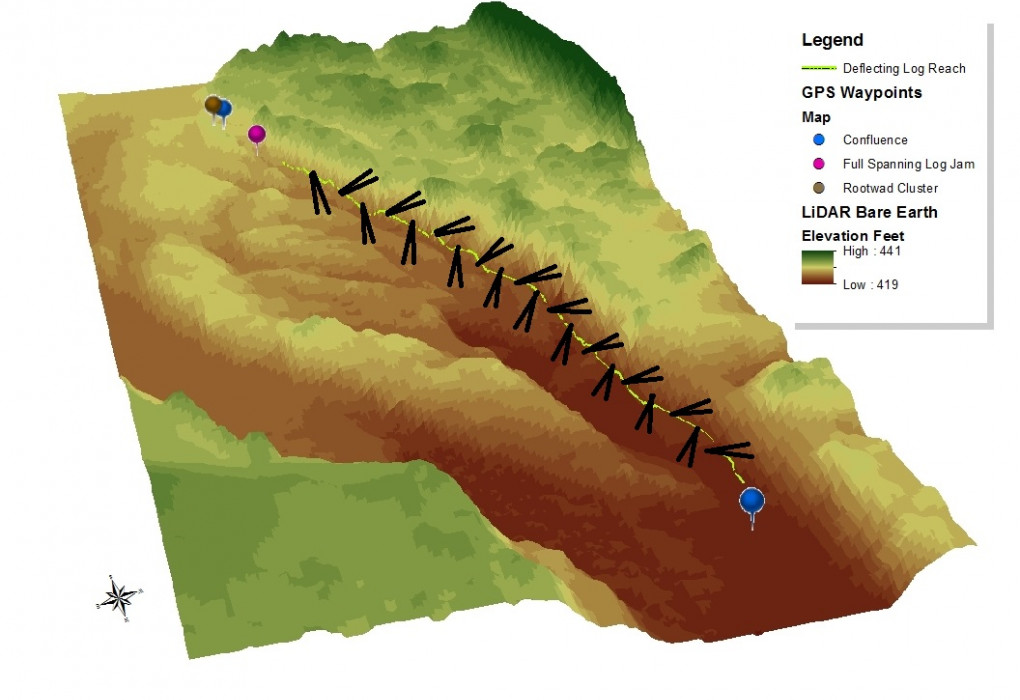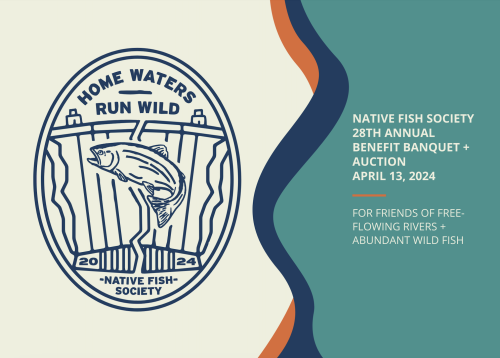Molalla Side Channel Restoration Project
October 30th, 2017
Oregon Watershed Enhancement Board
ATTN: Meta Lofsgarden, OWEB Executive Director
Liz Redon, Willamette Basin Regional Office
775 Summer Street NE Suite 360
Salem, Oregon 97301
Dear Oregon Watershed Enhancement Board,
Guided by the best available science, the Native Fish Society’s mission is to advocate for the recovery of wild, native fish and promote the stewardship of the habitats that sustain them. The Native Fish Society believes that no effort for wild fish protection and recovery is more effective than those initiated and sustained by local communities. Our River Steward volunteers become those local voices, using their own place-based knowledge to engage in policy making, coalition building, watershed monitoring, community outreach, habitat protection and habitat restoration that provides the best outcomes for wild fish.
River Stewards in the Molalla watershed have worked with partners to monitor, design, and implement projects that create the greatest positive impact for wild, native fish with a focus on restoring the natural processes that create and sustain high quality fish habitat. The Native Fish Society would like to voice their enthusiastic support for the Molalla River Watch (MRW) proposal titled, “Molalla Side Channel Restoration Project”. This restoration effort represents an investment in fish habitat consistent with the mission of the Native Fish Society by restoring the reproductive capacity of threatened wild spring chinook, winter steelhead, and other native fish in the Molalla River, and as a tributary, contribute to the Willamette Basin recovery efforts. The restoration of four side channels addresses a root cause of juvenile anadromous fish mortality in the Molalla River during the hottest weeks of the year by restoring thermal refugia, and its connected habitat.
Prior to the development of this project, substantial monitoring was conducted to identify and prioritize these actions. These side channel projects will be initiated in the second half of 2018, and are ready to be started through established agreements with three landowners whose properties adjoin the sites. Placement of large conifer scour logs and large conifer point bar logjams with root wads will develop stratified pools consisting of hyporheic flow for salmonids. This is especially important for fish seeking thermal refuge within the Molalla watershed’s uninhabitable summer time main-stem temperatures. These structures will contribute to the natural processes by which these habitat features are maintained over time, protecting them from high winter flows and encouraging the growth of the native alder, cottonwood, and western red cedar complexes common to the lower river. Additionally, riparian under-planting in the first quarter of 2019 will provide a long-term source of large woody debris and riparian shade for the developed channels and pools that currently exist.
As with all habitat restoration project, the Native Fish Society encourages post project monitoring following the completion of the project. We appreciate the collaborative and grassroots effort to create a systemic solution that yields a net gain of diverse and high quality habitats to sustain wild, native fish.
Respectfully Submitted,
Terre Rogers, Molalla River Steward
Tom Derry, Molalla River Steward
Conrad Gowell, River Steward Program Director

